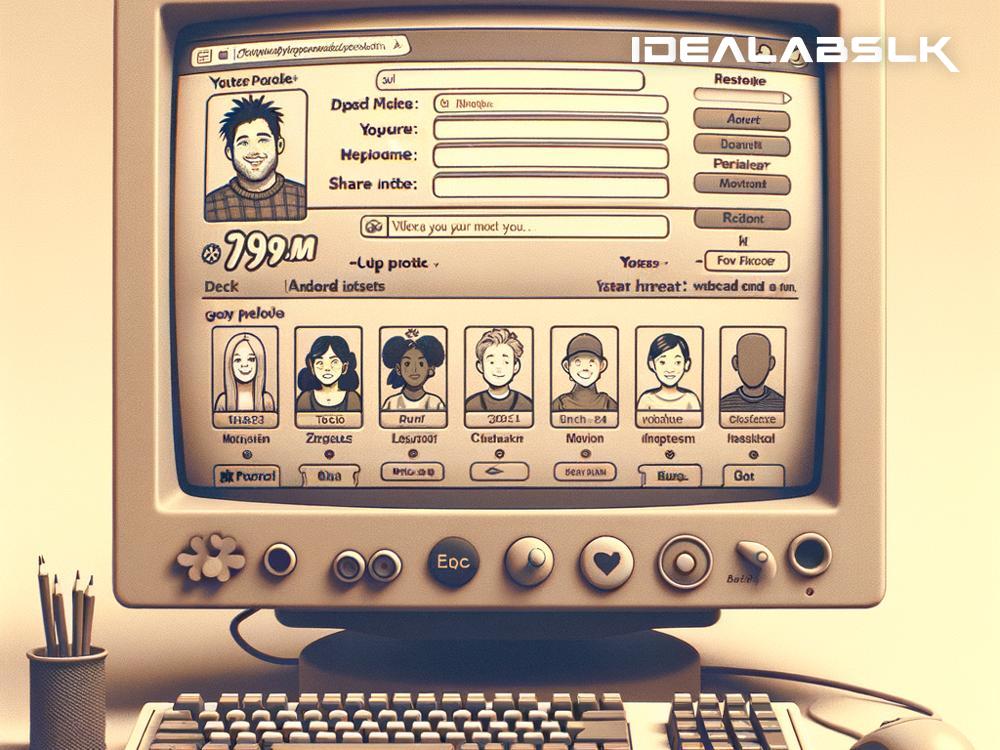The Rise and Fall of MySpace: A Tale of Digital Dynasty
In the early 2000s, long before the dominance of Facebook, Instagram, or Twitter, there was a social media platform that ruled them all - MySpace. It was the place where millions of users spent their time, discovering music, making friends, and expressing themselves. However, as quickly as it rose to fame, MySpace experienced a dramatic fall. This is the story of how MySpace went from being the king of social media to a lesson in digital history.
The Golden Age of MySpace
Founded in 2003 by Chris DeWolfe and Tom Anderson, MySpace quickly became the hotspot for internet users. What made MySpace unique was its highly customizable profiles. Users could change their background, music, and even HTML codes to personalize their space. It was not just about being online; it was about showing the world who you were.
Moreover, MySpace was a haven for music lovers and emerging artists. It provided a platform where new bands could share their music, connect with fans, and even land record deals. Big names like Arctic Monkeys and Lily Allen owe their initial success to the exposure they got on MySpace.
This unique blend of social networking and music discovery was why, by 2006, MySpace became the most visited website in the United States, overtaking even Google. It seemed like MySpace was on top of the digital world, but the internet is a fast-changing landscape.
The Beginning of the End
The fall of MySpace didn't happen overnight. It was a series of missteps and missed opportunities that led to its decline.
1. The Rise of Competition
In 2006, a new player entered the social media scene - Facebook. Initially exclusive to college students, Facebook opened its doors to the general public in September of that year. Unlike MySpace, Facebook offered a cleaner interface, easier navigation, and features that fostered real-life connections. The competition for users' attention began.
2. Poor User Experience
As MySpace grew, so did its problems. The platform became infamous for its cluttered pages full of animations, auto-playing music, and heavy use of HTML customization. This didn't just slow down the site; it made it visually overwhelming. While MySpace focused on personal expression, Facebook emphasized usability and simplicity, attracting users who preferred a cleaner and more uniform look.
3. Corporate Woes
In 2005, media giant News Corporation bought MySpace for $580 million, hoping to capitalize on its massive user base. However, the corporate takeover introduced a heavy dose of commercialization. The website became overloaded with ads, making the user experience even more frustrating. This focus on monetization over user satisfaction further alienated its audience.
4. Technological Stagnation
As social media evolved, MySpace struggled to innovate. Features that were revolutionary in 2003 seemed outdated a few years later. On the other hand, competitors like Facebook continually updated their platforms with new features like the News Feed, which kept users engaged and coming back.
The Final Curtain
By 2008, MySpace's decline was undeniable. Facebook overtook MySpace in global users, marking the end of an era. Attempts were made to revitalize the platform, including a redesign in 2010 focused on entertainment. However, it was too little, too late. The MySpace of the early 2000s, the pioneer of social media, was effectively gone.
Lessons Learned
MySpace's fall from grace is not just a cautionary tale of a company failing to adapt; it's a reminder of the internet's transitory nature. It teaches us the importance of user experience, the need for continuous innovation, and the impact of competition.
Though MySpace no longer sits upon the social media throne, its legacy lives on. It showed the world the power of online connectivity and paved the way for the digital giants of today. MySpace may have fallen, but its impact on the digital landscape is undeniably significant.
In the ever-evolving world of technology, MySpace serves as a poignant reminder of what was and a lesson for the future. As we navigate the digital age, let's not forget the story of MySpace - a platform that connected millions, transformed music discovery, and for a moment, ruled the digital world.

